Signs of life amid scars of huge Highland wildfire
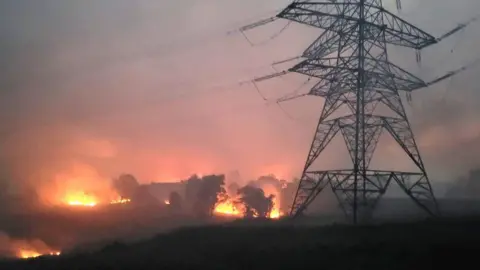 Balintore Fire Station/SFRS
Balintore Fire Station/SFRS- Habitat hit by a wildfire earlier this year is starting to regenerate, says RSPB Scotland
- Corrimony reserve near Cannich was affected by a fire that burned for two weeks earlier this year
- The RSPB said eggs of ground-nesting birds and some insects perished in the fire
- There were already some signs of new life in the damaged areas
Conservationists say there are signs of recovery in areas of protected habitat damaged by a huge wildfire.
Flames burned in woodland and moor near Cannich, south of Inverness, for two weeks this summer.
At the height of the incident, a Nasa satellite detected smoke from the wildfire drifting 12-mile (20km) west towards Loch Ness.
RSPB Scotland, whose Corrimony nature reserve was affected, said that almost four months on some habitat was starting to regenerate.
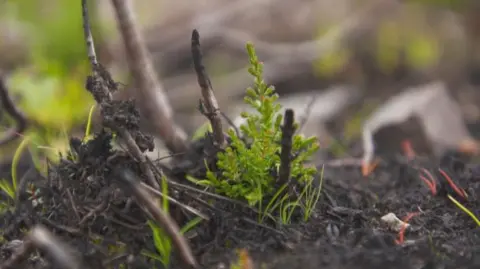
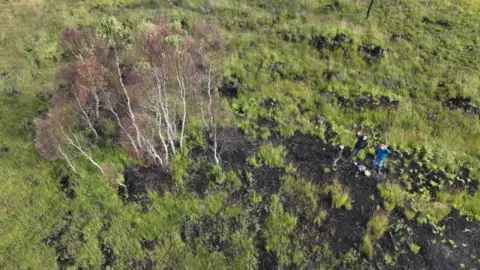
RSPB's Simon McLaughlin said the fire had come at a bad time for wildlife, with many species in the midst of their breeding season.
He said: "The fire was big and out of control.
"A lot of birds were nesting, and there were invertebrates and mammals that were unable to outrun the fire."
Trees including juniper of more than 50 years old were also lost to the fire.
But Mr McLaughlin added: "A lot of plants are used to fire and we are now seeing regeneration and growth.
"In five to six years it will start to look much like it did before the fire.
"Animals will come back and recolonise. Things will recover."
Forestry and Land Scotland believed a campfire was the cause of the wildfire, which started on 28 May.
Dozens of firefighters tackled the incident, supported by gamekeepers and waterbombing by helicopters.
Fire crews spent days extinguishing deep-seated hotspots in layers of peatland.
The Scottish Fire and Rescue Service estimated the wildfire burned through five square miles (15 sq km) of land.
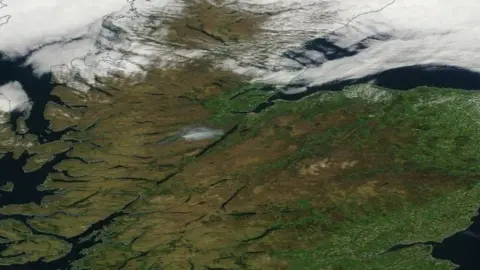 Nasa
Nasa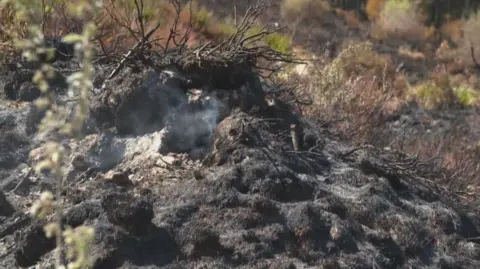
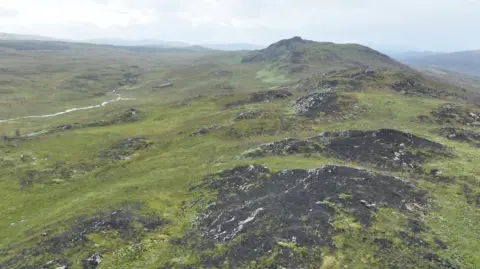
Do you have an idea for a story we could cover? Email our local reporters: [email protected]
